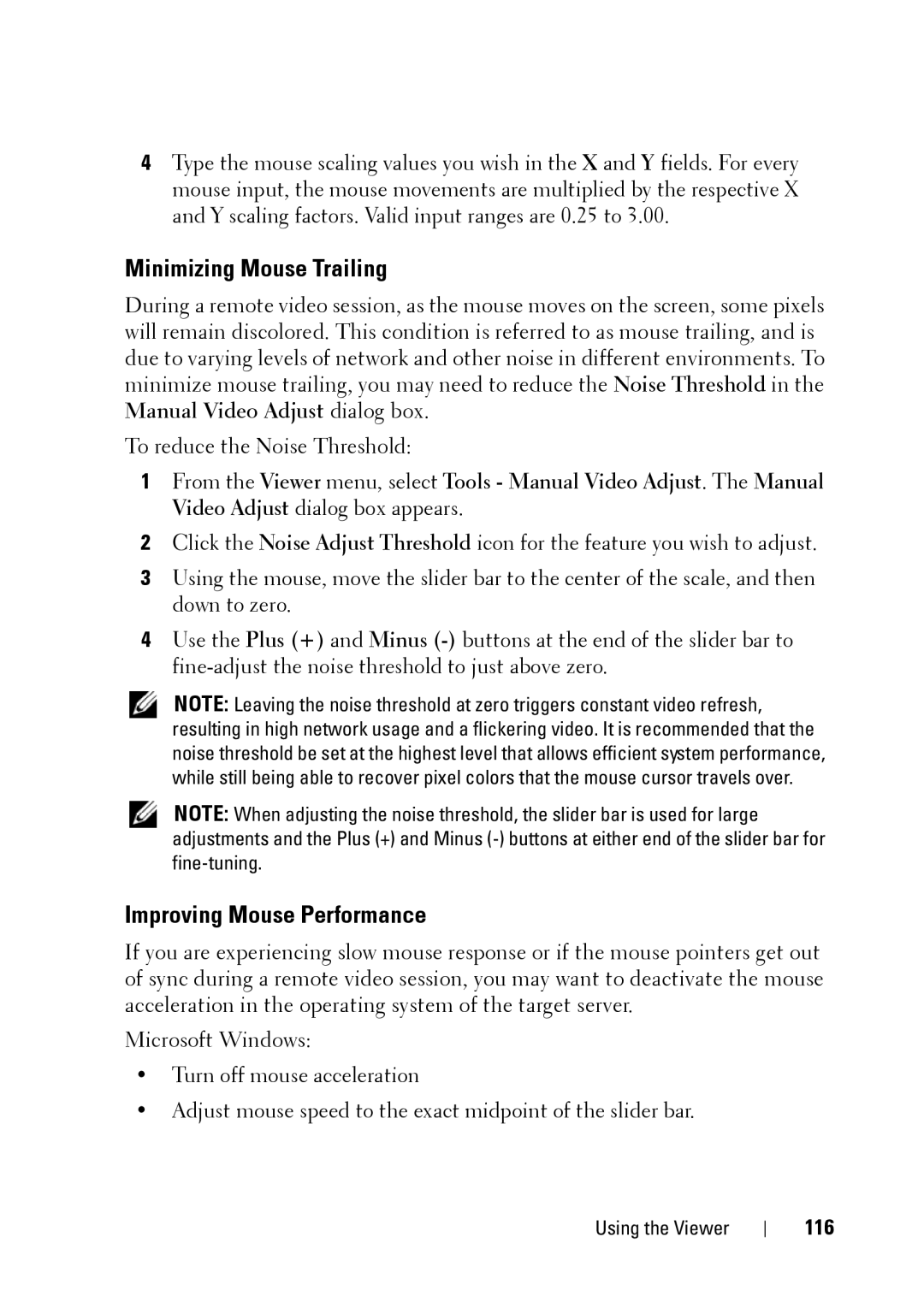
4Type the mouse scaling values you wish in the X and Y fields. For every mouse input, the mouse movements are multiplied by the respective X and Y scaling factors. Valid input ranges are 0.25 to 3.00.
Minimizing Mouse Trailing
During a remote video session, as the mouse moves on the screen, some pixels will remain discolored. This condition is referred to as mouse trailing, and is due to varying levels of network and other noise in different environments. To minimize mouse trailing, you may need to reduce the Noise Threshold in the Manual Video Adjust dialog box.
To reduce the Noise Threshold:
1From the Viewer menu, select Tools - Manual Video Adjust. The Manual Video Adjust dialog box appears.
2Click the Noise Adjust Threshold icon for the feature you wish to adjust.
3Using the mouse, move the slider bar to the center of the scale, and then down to zero.
4Use the Plus (+) and Minus
NOTE: Leaving the noise threshold at zero triggers constant video refresh, resulting in high network usage and a flickering video. It is recommended that the noise threshold be set at the highest level that allows efficient system performance, while still being able to recover pixel colors that the mouse cursor travels over.
NOTE: When adjusting the noise threshold, the slider bar is used for large adjustments and the Plus (+) and Minus
Improving Mouse Performance
If you are experiencing slow mouse response or if the mouse pointers get out of sync during a remote video session, you may want to deactivate the mouse acceleration in the operating system of the target server.
Microsoft Windows:
•Turn off mouse acceleration
•Adjust mouse speed to the exact midpoint of the slider bar.
Using the Viewer
